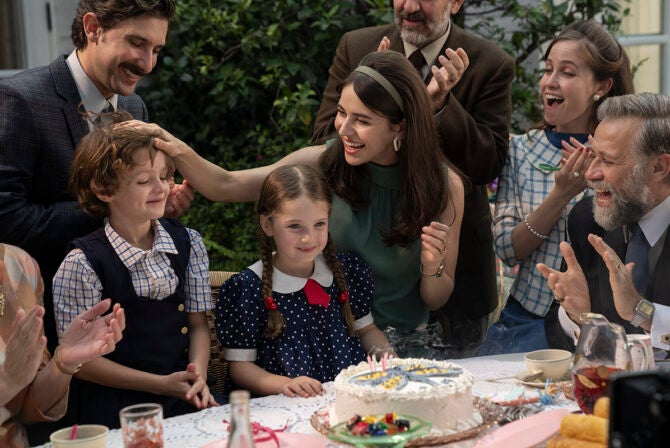Recently I wrote an article for Kveller titled “Are Jews Too Concerned With Seeking Out Other Jews?” In that piece, I discussed my tendency to feel an instant connection with a “member of the Tribe” whether it’s on the sidelines of our kids’ soccer games, in a professional context, or anywhere, really.
While many readers strongly related, in a positive way, to this warm and even mystical element of the Jewish community, a side issue of exclusion came out of the discussion as well. Several readers–Jews and non-Jews alike–commented that they found the Jewish community cliquey and unwelcoming. The conversation eventually meandered to the difficulty of making new friends as an adult, regardless of religion.
I was once a newcomer in Minneapolis–a stranger in a strange land, if you will–and it took years for me to feel comfortable here with my fellow Jews and non-Jews, too.
I won’t claim to have any answers for how schools, synagogues, sports teams, and entire cities can feel more welcoming to all people. All I know is what worked and didn’t work for me when I moved to Minneapolis and what I’ve observed when others have moved to town.
TIPS FOR THE COMMUNITY
1. Acknowledge the Difference Between Saying You’re Welcoming and Being Welcoming
It’s a good start to wish you could help someone new to town who’s struggling to meet people. Even better is inviting a new family over for a meal, inviting the kids to play with your kids one afternoon, meeting at a park, making space in a book club, or finding other situations where the newcomer can meet more potential new friends. Don’t merely say, “We’d love to have you over.” Put the event on your calendar.
2. Greet Everyone
We read Pirkei Avot (Ethics of Our Fathers) during this time in the Jewish calendar. One popular lesson from those pages is the reminder to (I’m paraphrasing) “greet everyone with a cheerful face.” The commentary tends to focus on the “cheerful face” point. I think that’s important, but that first step to “greet everyone” matters tremendously, too. If you’re someone who’s not up for entertaining or you truly do not have time right now for new friends (it happens), you can still be a kind face in the bleachers of the baseball field or the pickup line at school. Remember the new person’s name. Say hello and goodbye every time. Even those small gestures are positive and helpful.
3. Make Introductions
The best antidote to a cliquey atmosphere is to make introductions. Don’t just say hello to the new person you’ve met once or twice, introduce her and her family to other people you know standing around. (It’s my biggest pet peeve when people fail to do this.) If you’ve gone as far as to invite the new family over for a meal, maybe have another “established” family at the same time. Adopt a “the more the merrier” attitude. The meal doesn’t have to be fancy. Pizza or bagels will do. The gift of fostering connections between people is priceless.
FOR THE NEWCOMER
1. Keep Expectations Reasonable
When I moved to Minneapolis, I expected everyone to be as eager about making new friends as I was. If I scheduled a coffee date, I wanted to meet again right away without recognizing that those with long-standing social and family obligations in town had less time to give. The mistake I made was taking the slow pace of friendship personally, then acting hurt and standoffish instead of warm the next time I saw the same people out and about. Nobody wants to hang out with someone walking around with a chip on her shoulder.
2. The Burden Falls on the Newcomer
In an ideal world, whenever someone new arrives, the entire community would embrace the family with invitations and other welcoming gestures. Realistically, however, the burden falls on the newcomer in those first years to continually put forth more effort, to be the first to say hello, and to make most of the plans.
3. Do Not Get Overly Focused On Any One Person or “Group”
If there’s a group of women that reminds you of the friends you left behind, it’s natural to focus all of your efforts in that one direction. But if your attempts to make plans and forge connections are rarely reciprocated, then move on. There are other people in town to meet. It’s one thing to make most of the effort and quite another to make all the effort.
I realize that this all comes down to the same guidance many of us give to our children before starting a new school year, trying a new camp program, or as they navigate the dynamics of the kid world. We tell them to be nice to everyone, give people second chances, smile and say hello, and be extra nice to the new kid. Maybe we parents need to take our own advice if we desire an atmosphere that’s authentically inviting and open.
Kveller readers: Do you think that the communities you’re involved in are welcoming? What works? And if you’ve settled into a new city, what helped you feel at home?
Like this post? Get the best of Kveller delivered straight to your inbox.







